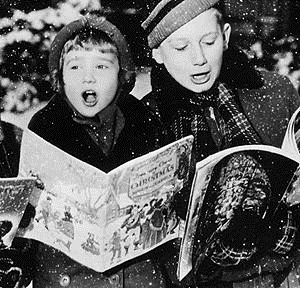
 N A BOOK CALLED The Ministry of Catechising, which originally appeared in French in 1868 (an English translation appeared in 1890 in London), the famous Bishop Felix Dupanloup recalled memories of his First Communion:
N A BOOK CALLED The Ministry of Catechising, which originally appeared in French in 1868 (an English translation appeared in 1890 in London), the famous Bishop Felix Dupanloup recalled memories of his First Communion:
We were delighted with the hymns. We sung them with all our heart, and gradually, by the sweetness or the energy of the singing, the thoughts and maxims of the faith were grafted in our souls. To say the truth, it was the life of the Catechism. Without the hymns, it would all have been very cold. For me, it was the hymns more than anything which converted me and bound me forever to religion.
While readers of Views from the Choir Loft know that the Mass itself is not the optimal place for hymns, which belong more correctly in the Divine Office (with the exception of the Gloria and, if one considers it a hymn, the Sanctus), nevertheless there is an important truth to which Bishop Dupanloup bears witness: the enormous value of singing together beautiful vernacular religious songs that have the power to shape the senses, imagination, and memory, and through them, to shape the heart and mind. We are so blessed with a rich repertoire of famous Advent, Christmas, and Epiphany carols, hymns, and songs, and we should use them abundantly in our homes, in our youth groups, in prayer meetings or Adoration, when caroling in the neighborhood, visiting a nursing home or prison, or any other appropriate setting. Let us not surrender the world of sound to secular content, but fill it with joyful singing! It is, in more ways than one, a true corporal and spiritual work of mercy.
Children especially deserve to have glowing memories of carols, just as Dupanloup recounts. This is a preaching of the Gospel before the age of reason, a preaching to all the powers of the soul, not just to the intellect, which has been excessively emphasized in recent decades. Catechesis begins with the imagination. In their memoirs, the Ratzinger brothers Joseph and Georg recount how their family circle was often enlivened by the sound of singing and instruments, and how their earliest memories are bound up with music and Christian songs. One of these men went on to become an eminent musician and choral director, while the other went on to become Pope Benedict XVI. While I can’t promise that your boys will have such illustrious careers, there is no question that part of the restoration of Catholic culture is a robust culture of family and community singing.

Please visit THIS PAGE to learn more about Dr. Kwasniewski’s Sacred Choral Works and the audio CDs that contain recordings of the pieces.
